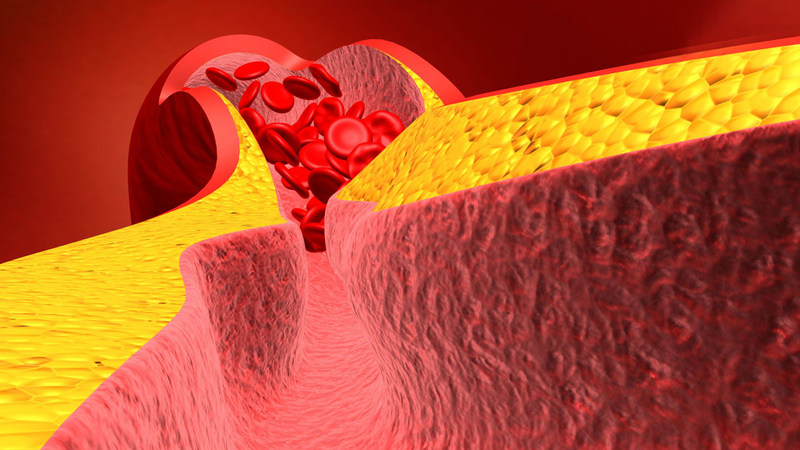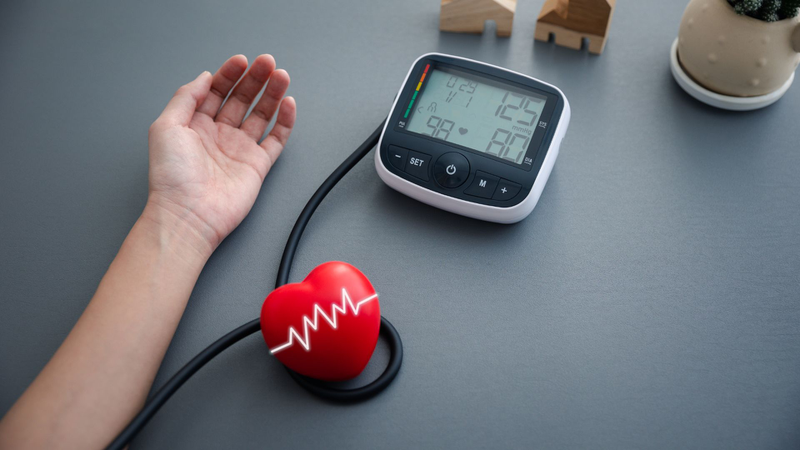Have you ever wondered why many young people suddenly have heart attacks? The answer may lie in an “enemy” that we often pay little attention to: high blood fat. If not controlled, it can cause dangerous complications such as stroke, myocardial infarction. This is a “silent” but very dangerous disease.
What is high blood fat?
Blood fat, also known as blood lipids, is a synthesis of fats in the blood such as cholesterol, triglycerides. When the amount of this fat exceeds the allowable level, they will accumulate in the blood vessel wall, like a water pipe with sediment, this narrows the lumen of the vessel, making blood circulation more difficult, and gradually causing atherosclerosis. This is the cause of many dangerous diseases.

High blood fat causes many dangerous diseases
Why is high blood fat a “silent killer”?
The main reason why high blood fat becomes a “silent killer” lies in the silence of the disease during its development and the serious consequences it brings to cardiovascular health.
No obvious symptoms
In the early stages, high blood fat often does not cause any symptoms and makes it easy for patients to ignore their health condition. This leads to subjectivity and negligence in regular health check-ups and monitoring.
Silent progression
The process of atherosclerosis occurs slowly and painlessly. Only when the arteries are severely blocked or narrowed do patients begin to feel obvious symptoms such as chest pain, shortness of breath, or even sudden cardiovascular events. At that time, the disease is in a severe stage, difficult to treat.
Causes many dangerous complications
High blood fat is a leading risk factor for dangerous cardiovascular diseases, which can be life-threatening if not controlled promptly. Here are some of the main complications of this condition:
- Stroke: When a blood clot forms and travels to the brain, blocking a blood vessel in the brain, it can lead to a stroke, causing serious brain damage, even death if not treated promptly.
- Myocardial infarction: When a blood clot blocks a coronary artery, reducing or blocking blood flow to the heart. This prevents the heart muscle from receiving enough oxygen, leading to a heart attack – a critical condition that can quickly cause death.
- Atherosclerosis: High blood fat increases the accumulation of fat, calcium and other components in the blood vessels, leading to atherosclerosis. This not only causes narrowing and hardening of the arteries, but also reduces blood flow to vital organs such as the heart, brain and kidneys, seriously affecting overall health.

High blood fat is one of the factors that directly affect cardiovascular disease.
Causes of dyslipidemia
Unhealthy diet: Regularly eating foods rich in saturated fat, cholesterol, fast food, and sweets. The body will accumulate excess fat, increasing bad cholesterol (LDL) and reducing good cholesterol (HDL).
- Lack of exercise: Laziness and lack of exercise will cause excess fat to not be burned, leading to fat accumulation in the body. This not only causes weight gain but also causes an imbalance in blood lipid indices.
- Genetics: If a family member has cardiovascular disease or a history of high blood lipids, your risk of experiencing a similar condition will increase. People with this genetic factor often tend to overproduce cholesterol or cannot effectively remove excess cholesterol from the blood, leading to fat accumulation in the blood.
- Other factors: Diabetes, high blood pressure, obesity, drinking alcohol, etc. are all “accomplices” that contribute to increasing the risk of dyslipidemia.
Who is at high risk of dyslipidemia?
Some subjects are at high risk of dyslipidemia such as:
- People with a family history of cardiovascular disease, high blood lipids;
- People with chronic diseases such as diabetes, high blood pressure, …
- People with little exercise;
- Older people;
- Overweight, obese people;
- Smokers;
- People who regularly drink alcohol.

People who regularly drink alcohol have a high risk of dyslipidemia.
The importance of early screening
To prevent and effectively treat hyperlipidemia, early screening is extremely important. By having regular blood tests, you can detect dyslipidemia early and have timely interventions.
How to control hyperlipidemia?
- Medication regimen: Take dyslipidemia medication regularly as directed by your doctor.
- Diet: Limit fast food, sweets, greasy foods, increase green vegetables, fruits, and nuts.
- Limit alcohol consumption: Alcohol increases triglyceride levels in the blood.
- Exercise regimen: Exercise regularly, at least 30 minutes a day, 5 days a week. Maintain a reasonable weight.
- Do not smoke: Smoking increases the risk of atherosclerosis.

Early screening and a healthy lifestyle are extremely important.
High blood fat is truly a “silent killer” because it does not cause obvious symptoms in the early stages, but leads to dangerous complications and can cause sudden death such as stroke or heart attack. This makes prevention and early screening more important than ever. By maintaining a healthy lifestyle, controlling your diet, exercising regularly and following your doctor’s instructions, you can effectively prevent and control high blood fat.
Be proactive in health screening to protect yourself and your family from potential risks related to high blood fat. Your health is in your hands – don’t wait until it’s too late to act.





